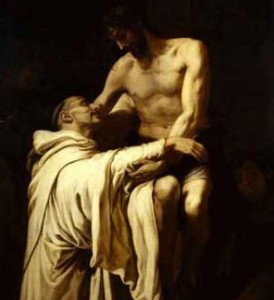Podcast: Play in new window | Download (Duration: 27:46 — 19.1MB) | Embed
Subscribe: Apple Podcasts | Spotify | Amazon Music | Android | Pandora | iHeartRadio | JioSaavn | Podchaser | Gaana | Podcast Index | Email | TuneIn | Deezer | Anghami | RSS | More
St. Isidore of Seville – The Doctors of the Church with Dr. Matthew Bunson

- Born: c. 560 Cartagena, Spain
- Died: 4 April 636 Seville, Spain
Dr. Matthew Bunson discusses St. Isidore of Seville, a Doctor of the Church often overlooked despite his significant contributions. Born around 560 and living till 636, he was a key figure in preserving classical learning during a turbulent post-Roman era.
Raised in a devout family, he became bishop of Seville following his brother Leander’s death. Isidore was known for his intellect, compiling extensive works including the influential “Etymologies,” an encyclopedia used for centuries. He was also a spiritual guide, advocating for church discipline and unity, notably combating Arianism. Isidore’s death in 636 was marked by his exemplary piety. Despite being somewhat overlooked, he was declared a Doctor of the Church in 1722.
His life and teachings continue to inspire, even earning him consideration as the patron saint of the internet due to his commitment to learning and perseverance.
Discerning Hearts Reflection Questions
- St. Isidore’s Contributions: Reflect on St. Isidore’s significant contributions to preserving classical learning and his role in shaping education during a turbulent era. How can his example inspire us to prioritize learning and intellectual pursuits in our own lives?
- Family Influence: Consider the influence of St. Isidore’s devout family on his spiritual formation. How does the example of his family’s strong Christian faith encourage us to cultivate faith within our own families?
- Spiritual Growth Through Adversity: Explore St. Isidore’s experience of spiritual growth through adversity, such as his relationship with his brother and his contemplative journey. How can we apply the lessons of patience, perseverance, and obedience to God’s will in our own spiritual lives?
- Role as Bishop: Reflect on St. Isidore’s role as a bishop, his efforts to combat heresy, and his leadership in guiding the Church through a period of cultural and religious transition. How can we emulate his commitment to defending the faith and fostering unity within the Church?
- Legacy and Patronage: Consider St. Isidore’s lasting legacy as a Doctor of the Church and his patronage, including his proposed patronage of the internet. How does his example of embracing new technologies and adapting to change challenge us to engage with the modern world while remaining faithful to our Christian values?
For more on St. Isidore and his teachings:
From Vatican.va, an excerpt from the teachings of Pope Benedict XVI General Audience 2008:
“To understand Isidore better it is first of all necessary to recall the complexity of the political situations in his time to which I have already referred: during the years of his boyhood he was obliged to experience the bitterness of exile. He was nevertheless pervaded with apostolic enthusiasm. He experienced the rapture of contributing to the formation of a people that was at last rediscovering its unity, both political and religious, with the providential conversion of Hermenegild, the heir to the Visigoth throne, from Arianism to the Catholic faith. Yet we must not underestimate the enormous difficulty of coming to grips with such very serious problems as were the relations with heretics and with the Jews. There was a whole series of problems which appear very concrete to us today too, especially if we consider what is happening in certain regions in which we seem almost to be witnessing the recurrence of situations very similar to those that existed on the Iberian Peninsular in that sixth century. The wealth of cultural knowledge that Isidore had assimilated enabled him to constantly compare the Christian newness with the Greco-Roman cultural heritage, however, rather than the precious gift of synthesis it would seem that he possessed the gift of collatio, that is, of collecting, which he expressed in an extraordinary personal erudition, although it was not always ordered as might have been desired.
In any case, his nagging worry not to overlook anything that human experience had produced in the history of his homeland and of the whole world is admirable. Isidore did not want to lose anything that man had acquired in the epochs of antiquity, regardless of whether they had been pagan, Jewish or Christian. Hence, it should not come as a surprise if, in pursuing this goal, he did not always manage to filter the knowledge he possessed sufficiently in the purifying waters of the Christian faith as he would have wished. The point is, however, that in Isidore’s intentions, the proposals he made were always in tune with the Catholic faith which he staunchly upheld. In the discussion of the various theological problems, he showed that he perceived their complexity and often astutely suggested solutions that summarize and express the complete Christian truth. This has enabled believers through the ages and to our times to profit with gratitude from his definitions. A significant example of this is offered by Isidore’s teaching on the relations between active and contemplative life. He wrote: “Those who seek to attain repose in contemplation must first train in the stadium of active life; and then, free from the dross of sin, they will be able to display that pure heart which alone makes the vision of God possible” (Differentiarum Lib. II, 34, 133: PL 83, col 91A). Nonetheless, the realism of a true pastor convinced him of the risk the faithful run of reducing themselves to one dimension. He therefore added: “The middle way, consisting of both of these forms of life, normally turns out to be more useful in resolving those tensions which are often aggravated by the choice of a single way of life and are instead better tempered by an alternation of the two forms” (op. cit. 134; ibid., col 91B).
Isidore sought in Christ’s example the definitive confirmation of a just orientation of life and said: “The Saviour Jesus offers us the example of active life when during the day he devoted himself to working signs and miracles in the town, but he showed the contemplative life when he withdrew to the mountain and spent the night in prayer” (op. cit. 134: ibid.). In the light of this example of the divine Teacher, Isidore can conclude with this precise moral teaching: “Therefore let the servant of God, imitating Christ, dedicate himself to contemplation without denying himself active life. Behaving otherwise would not be right. Indeed, just as we must love God in contemplation, so we must love our neighbour with action. It is therefore impossible to live without the presence of both the one and the other form of life, nor can we live without experiencing both the one and the other” (op. cit., 135; ibid. col 91C). I consider that this is the synthesis of a life that seeks contemplation of God, dialogue with God in prayer and in the reading of Sacred Scripture, as well as action at the service of the human community and of our neighbour. This synthesis is the lesson that the great Bishop of Seville has bequeathed to us, Christians of today, called to witness to Christ at the beginning of a new millennium.”
For more visit Vatican.va
For more from Dr. Matthew Bunson, check out his Discerning Hearts page.
Dr. Matthew E. Bunson is a Register senior editor and a senior contributor to EWTN News. For the past 20 years, he has been active in the area of Catholic social communications and education, including writing, editing, and teaching on a variety of topics related to Church history, the papacy, the saints and Catholic culture. He is faculty chair at Catholic Distance University, a senior fellow of the St. Paul Center for Biblical Theology, and the author or co-author of over 50 books including The Encyclopedia of Catholic History, The Pope Encyclopedia, We Have a Pope! Benedict XVI, The Saints Encyclopedia and best-selling biographies of St. Damien of Molokai and St. Kateri Tekakwitha.

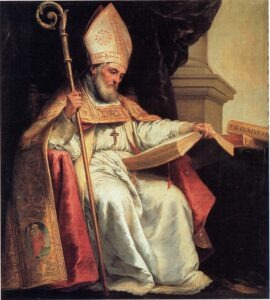

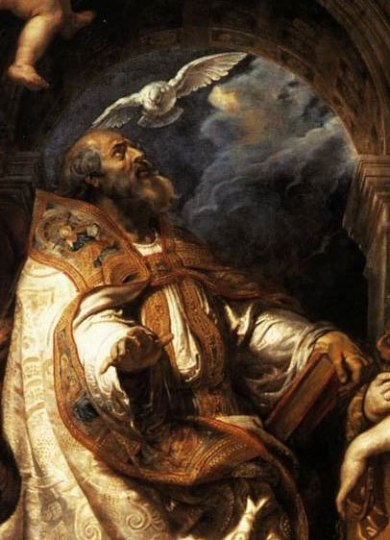
 In this episode, Dr. Lilles discusses the Second Mansions of the “Interior Castle” which covers:
In this episode, Dr. Lilles discusses the Second Mansions of the “Interior Castle” which covers: For other audio recordings of various spiritual classics you can visit the
For other audio recordings of various spiritual classics you can visit the 
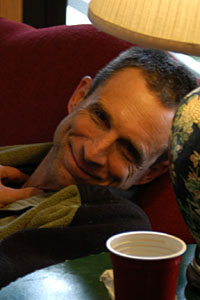
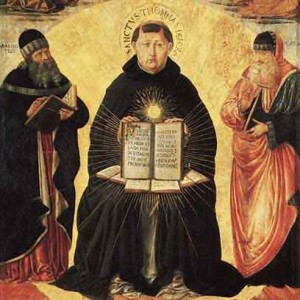
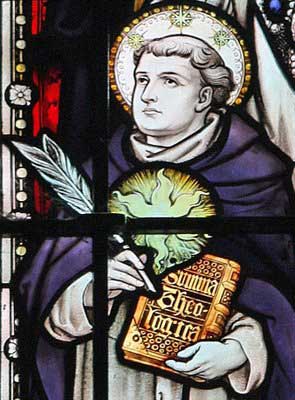 On the contrary, Other sciences are called the handmaidens of this one: “Wisdom sent her maids to invite to the tower” (
On the contrary, Other sciences are called the handmaidens of this one: “Wisdom sent her maids to invite to the tower” ( St. Bernard and “On Loving God” – The Mystery of Faith in the Wisdom of the Saints
St. Bernard and “On Loving God” – The Mystery of Faith in the Wisdom of the Saints 